Last updated on June 14th, 2025 at 06:27 pm
In modern sales, conversations are currency. From cold outreach to closing calls, your team is having dozens — or even hundreds — of conversations every week. But how much of that information is being captured, reviewed, or used to drive improvement?
That’s where sales call recording proves invaluable. It’s no longer just a compliance feature — it’s a performance asset. When done right, recording calls helps teams identify winning techniques, improve onboarding, close more deals, and create a customer experience that drives loyalty.
Discover How FreJun’s Call Recording Works
As businesses scale, leaders can’t be on every call, but call recording ensures they never miss a moment that matters. In this article, we’ll explore the key advantages of sales call recording and why it’s one of the smartest investments you can make in 2025.
Table of contents
What Is Sales Call Recording?

Sales call recording is the process of capturing audio from voice conversations — usually through Voip or cloud telephony platforms — and storing it for review, analysis, or training. Calls may be recorded automatically or on demand, depending on workflow and regulations.
Today’s advanced platforms do much more than simply store audio. They offer:
- Real-time call transcription
- AI-powered insights like keyword tagging and sentiment detection
- CRM/ATS integration for contextual playback
- Searchable archives with filters by rep, stage, or outcome
- Coachable moments marked by timestamps or notes
Recording every conversation turns your sales floor into a living library of customer insight, competitive strategy, and conversion tactics.
Sales call recording is not about micromanagement—it’s about turning conversations into repeatable growth systems.
Why Sales Teams Are Adopting Call Recording in 2025
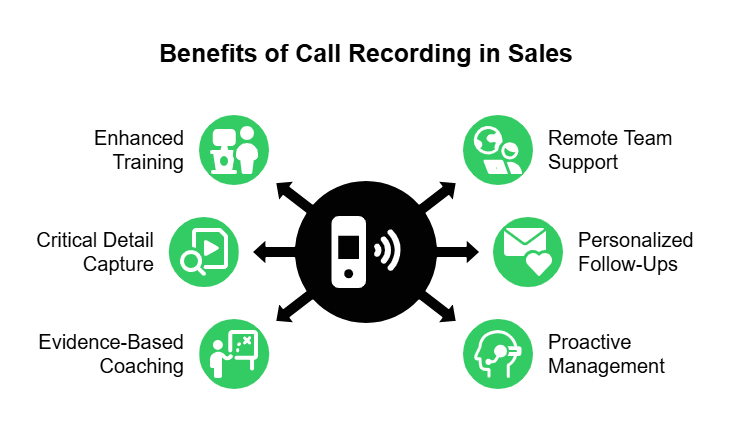
The sales landscape has evolved. With more remote teams, longer buying journeys, and complex product offerings, call recording has shifted from optional to essential. It’s the foundation of scalable sales intelligence.
Modern sales teams are adopting call recording to:
- Bridge the gap between training and real-world execution
- Support reps working across time zones or geographies
- Capture deal-critical details missed during fast-paced calls
- Make follow-ups more relevant and personalised
- Empower managers to coach with evidence, not assumptions
Most importantly, recording allows leaders to move from reactive to proactive sales management. Instead of hearing about problems after deals are lost, you can listen, diagnose, and fix them before they become trends.
Top Benefits of Sales Call Recording
Let’s break down the most powerful benefits of call recording for growing businesses across departments and use cases.
1. Boosting Sales Conversions

Conversion is the ultimate metric for any sales team. Recording helps your team understand exactly what works — and replicate it across reps, regions, and verticals.
How it helps:
- Discover which sales pitches or demos convert most frequently
- Study call flow patterns to optimise timing, tone, and CTAS
- Learn how top reps handle objections and pricing conversations
- Use real examples in team training to reinforce closing strategies
- Measure talk-to-listen ratios and coaching against high-performing benchmarks
Sales leaders can build entire playbooks from winning calls while new reps learn directly from what’s proven to work.
If you can’t measure your calls, you can’t improve them.
2. Improving Onboarding and Training
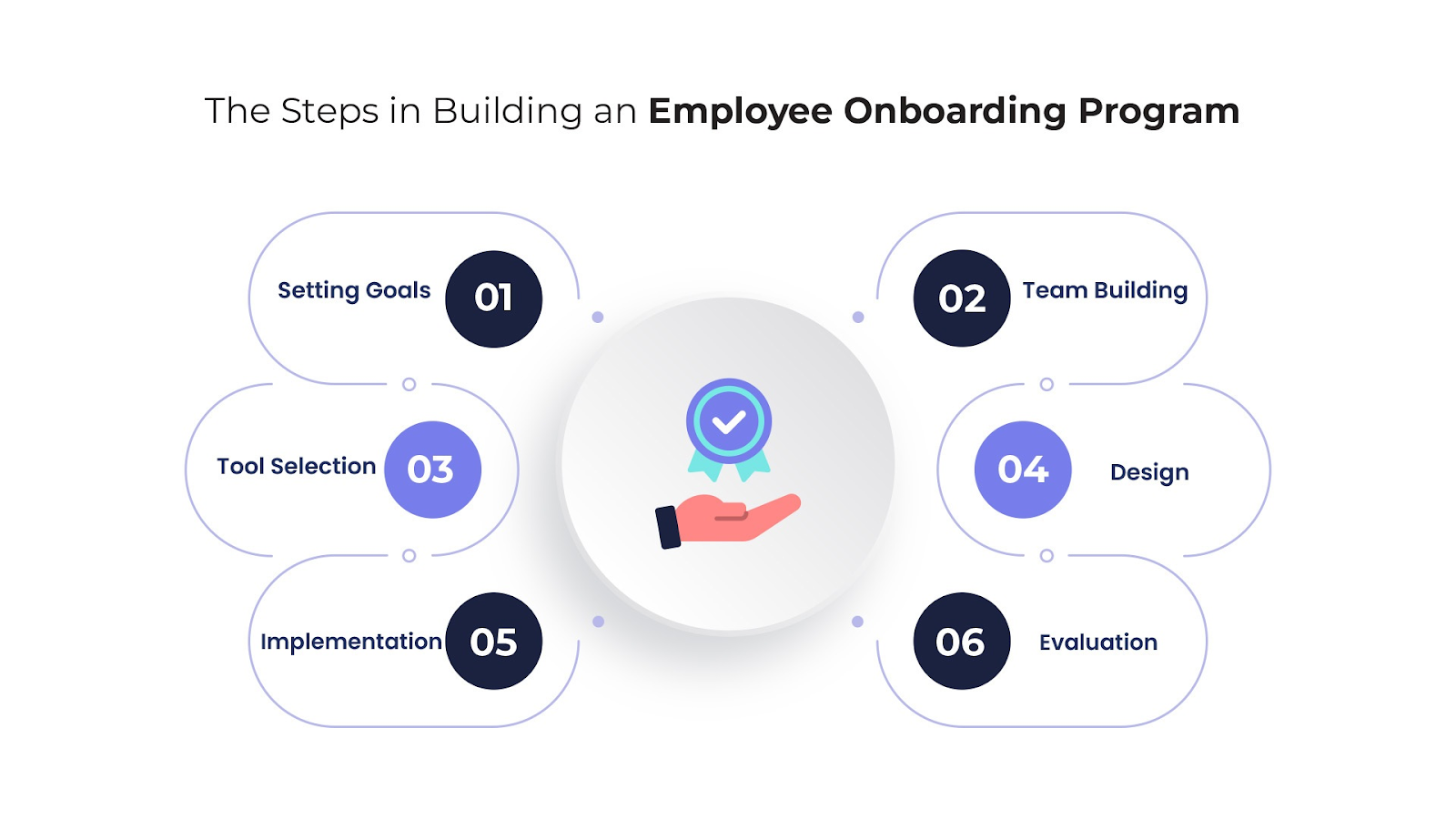
No matter how well you train your team in theory, real-world conversations teach the most valuable lessons. Call recordings help new hires learn directly from actual customer interactions.
Benefits of training:
- Reps hear objections and rebuttals they’ll face on the job
- Create a curated library of “gold standard” calls by stage or persona
- Provide feedback based on real scenarios instead of hypotheticals
- Allow new reps to self-evaluate and iterate quickly
When paired with structured coaching sessions, call recordings can compress the onboarding timeline and get new hires producing faster.
Learning by listening shortens the distance between theory and execution.
3. Enhancing Sales Coaching
Coaching is most effective when it’s specific. Instead of vague feedback, call recordings let managers coach to exact moments in the conversation.
Coaching impact:
- Managers can leave timestamped comments on recordings
- Pinpoint where reps are struggling with rapport, discovery, or closing
- Compare different approaches to the same objection or buyer persona
- Develop skill benchmarks by analysing call performance over time
- Use underperforming calls as case studies for learning moments
This kind of data-backed coaching is especially helpful in remote or hybrid setups where managers can’t be present on every call.
Sales coaching powered by real calls leads to faster, more measurable improvement.
4. Capturing the Voice of the Customer
Your customers are constantly giving you feedback — it’s just buried in hours of conversation. With call recording, that voice becomes a strategic advantage.
What you can capture:
- Common pain points and feature requests
- Customer language for marketing copy or sales scripts
- Frustrations with competitors or past solutions
- Patterns in why deals close—or don’t
- Urgency signals, emotional cues, and buying triggers
This is insight that marketing, product, and customer success can all benefit from. By making VOC part of your weekly workflow, you align your go-to-market efforts directly with customer needs.
The best marketers and product teams listen to what customers actually say — not what surveys suggest.
5. Enforcing Accountability and Compliance
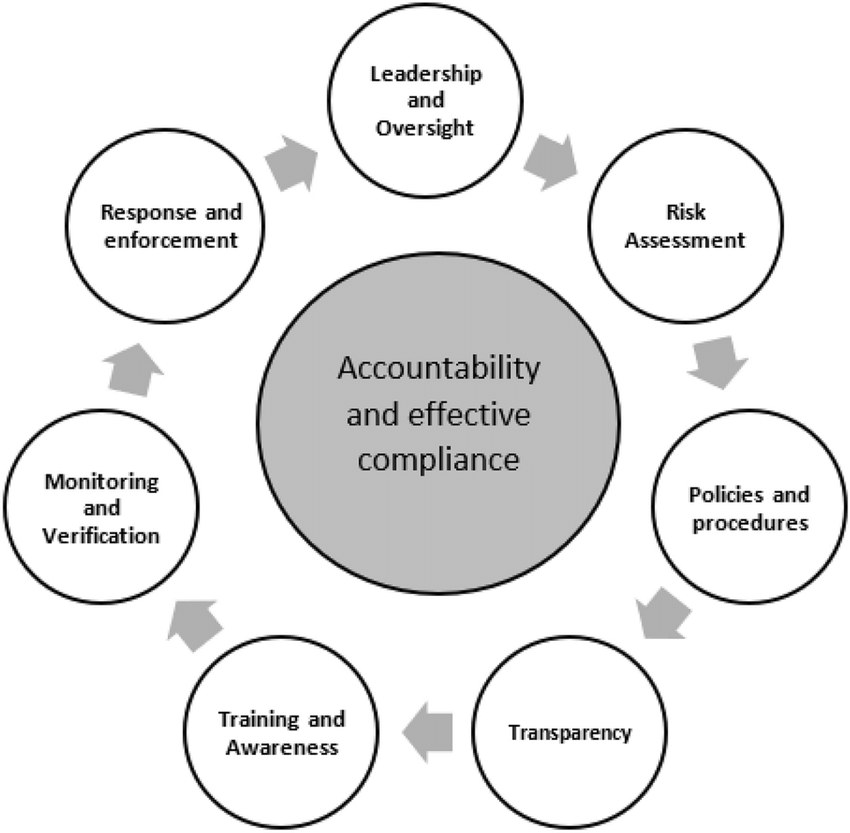
In regulated industries like finance, healthcare, and staffing, call recording is a requirement—not a preference. But even in less regulated environments, it helps ensure reps stay aligned with your brand and policies.
Why it matters:
- Provides audit trails for pricing, promises, and contract terms
- Resolves disputes by referencing exact call details
- Ensures ethical and professional standards are upheld
- Identifies behaviour that could lead to churn or complaints
- Encourages reps to stay sharp, knowing they’re accountable
Legal protection aside, it also gives confidence to managers and clients that quality is being maintained across all communications.
6. Ensuring Call Quality and Consistency
Every prospect should get a consistently great experience, regardless of which rep they speak to. Call recordings help maintain uniformity in tone, value delivery, and professionalism.
How it improves consistency:
- Spot where discovery is rushed or incomplete
- Measure alignment with scripts and talk tracks
- Audit for overpromising or under-delivering
- Identify and fix broken hand-off points between teams
- Develop consistency scorecards for performance reviews
Inconsistent calls lead to inconsistent results. Sales call recordings help standardise excellence across your team.
7. Improving Follow-Up Precision
Following up after a call is where deals are won or lost. Recording helps your reps recall every detail, personalise the next step, and move deals forward with precision and clarity.
Use cases:
- Revisit customer tone, objections, and verbal commitments
- Confirm details like use cases, competitor mentions, or timing
- Avoid asking repetitive questions by referencing past calls
- Craft follow-ups that reflect the buyer’s actual concerns
- Tag key insights to share with sales engineers or success teams
This not only improves conversion but also shows the customer you’re listening — a crucial element in complex, high-ticket sales.
How to Use Call Recording for Maximum Impact
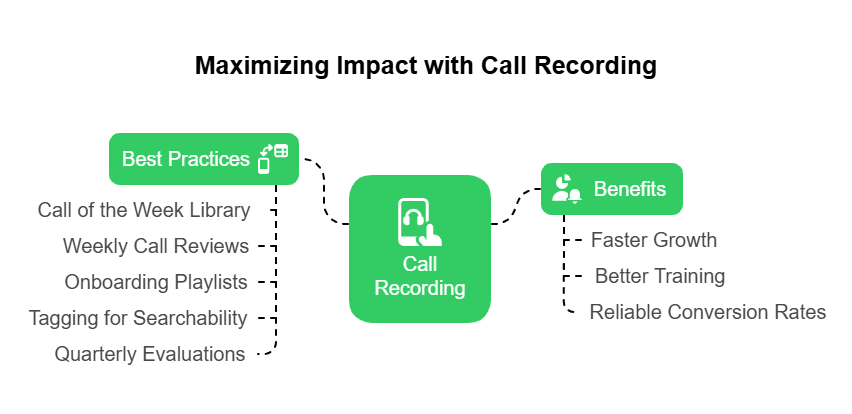
Recording calls is the first step. The real value comes when you embed call reviews into your sales process and feedback culture. Utilise call recording to identify and address problem areas within your processes and conversations. Identify communication issues impacting customer sentiment and uncover roadblocks hindering quick solutions. Call recording serves as the initial step in investigating and improving customer service.
Best practices:
- Build a “call of the week” library with commentary
- Include recorded call reviews in weekly 1:1s or team huddles
- Create playlists for onboarding new hires
- Tag calls by deal stage, industry, or use case for searchability
- Use recordings as part of quarterly rep evaluations
Teams that treat call recordings as living sales assets grow faster, train better, and convert more reliably.
The Role of AI and Analytics in Modern Call Recording

Modern call-recording tools come equipped with powerful AI features that automate insights and reduce manual effort. AI and analytics play a crucial role in modern call recording, enhancing quality control, compliance, and customer experience by providing real-time insights, automated analysis, and actionable data. AI-powered systems can analyse call recordings, identify patterns, and generate summaries, while analytics tools help assess agent performance and uncover trends in customer interactions.
What AI enables:
- Auto-transcription with keyword detection
- Sentiment and tone tracking across conversations
- Objection heatmaps by deal stage or industry
- Coaching suggestions based on rep behaviour
- Summary generation for post-call notes or follow-ups
Platforms like FreJun bring automation to the next level — so reps can focus on selling while leaders focus on strategy.
How to Choose the Right Call Recording Tool
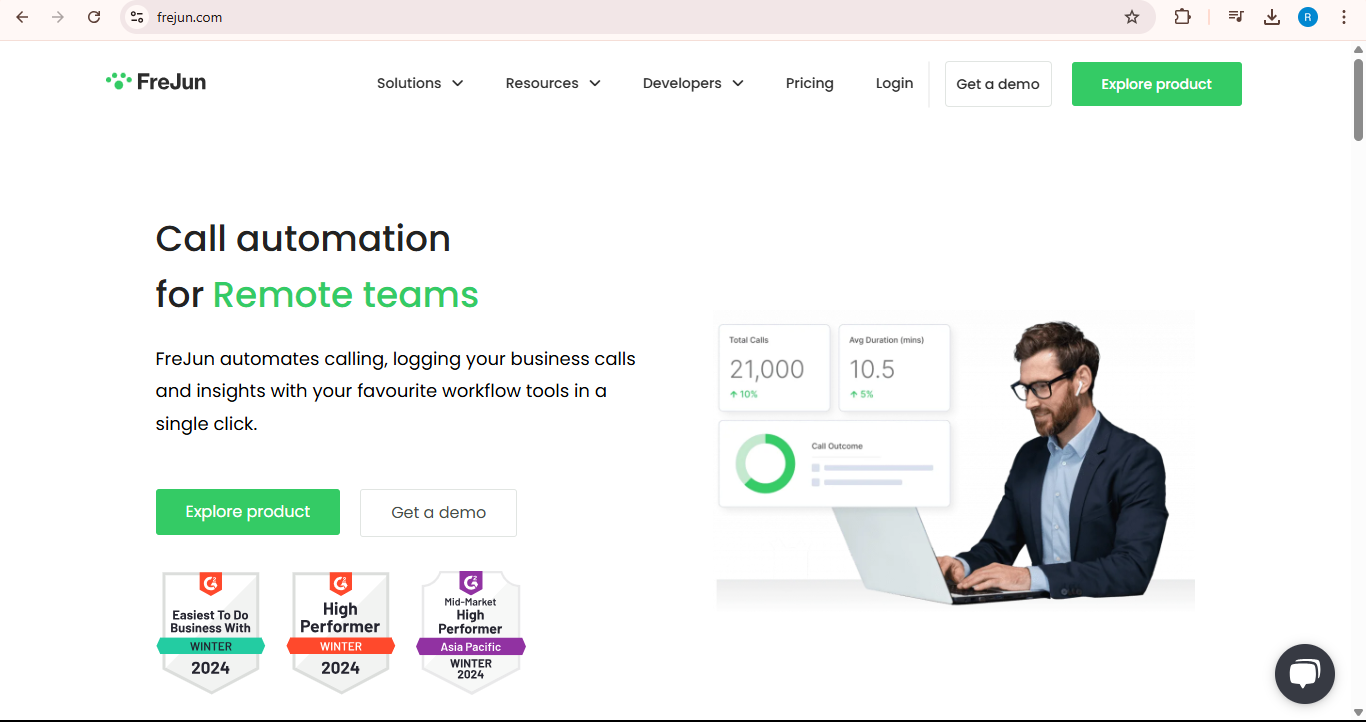
Choosing the right platform depends on your workflow, team size, and tech stack. To choose the right call-recording software, businesses should consider factors like call type, recording quantity, retention period, and security needs. Additionally, features like high-quality audio, automated recording, advanced search capabilities, CRM integration, and team collaboration tools are crucial for optimising customer experience and efficiency.
Key features to look for:
- Native CRM/ATS integration
See How FreJun Integrates with Leading CRMs
- AI-driven transcription and tagging
- Secure, compliant storage
- Cross-device access (browser, mobile, softphone)
- Team dashboards and analytics
- Powerful filtering and search capabilities
- Tools for coaching and collaboration
FreJun checks all these boxes and more — especially for Indian sales and recruitment teams using Zoho, Salesforce, CEIPAL, or LeadSquared.
Final Thoughts
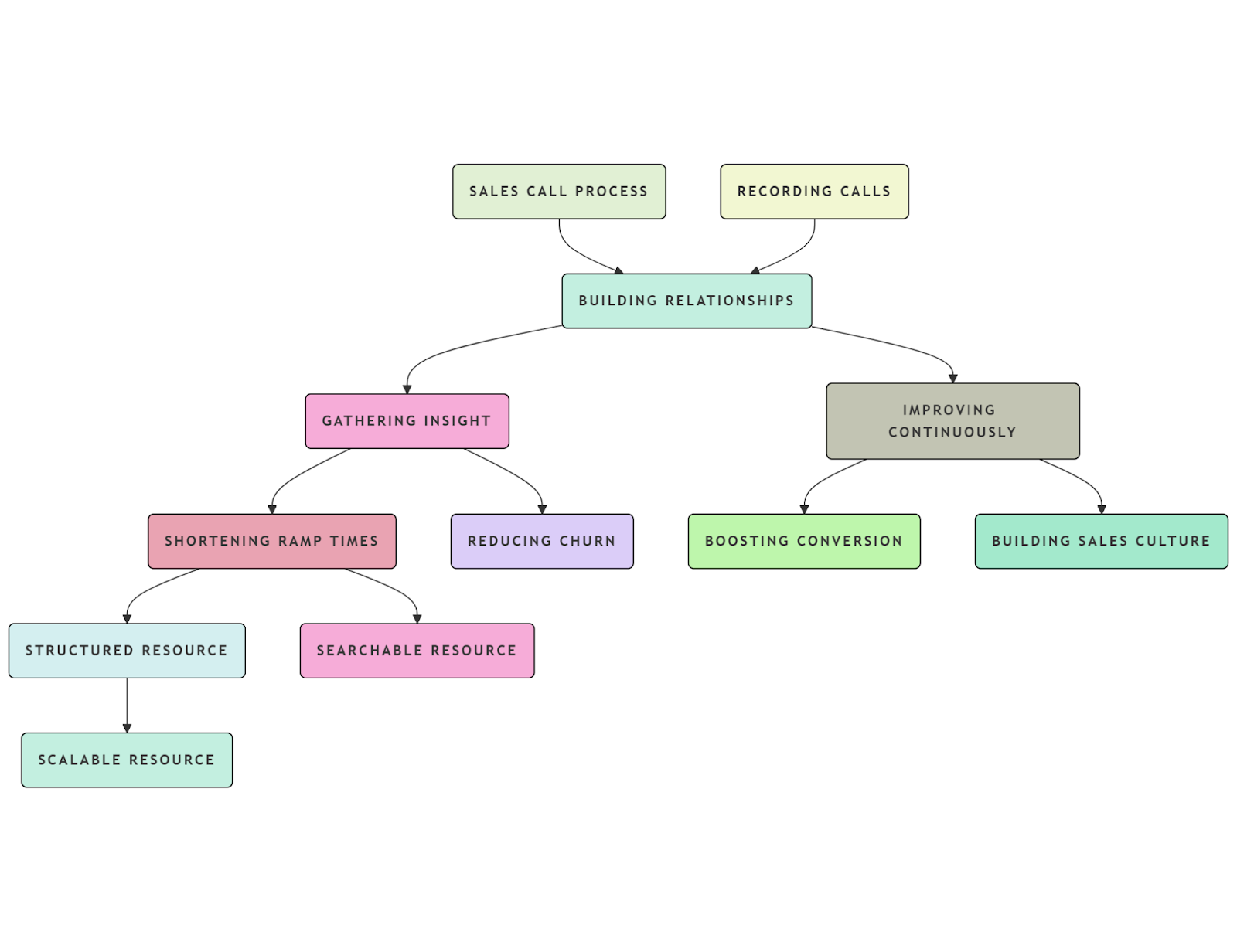
Sales calls are more than just steps in a pipeline — they’re opportunities to build relationships, gather insight, and improve continuously. By recording every call, your business transforms scattered conversations into a structured, searchable, and scalable resource.
Whether you’re trying to shorten ramp times, reduce churn, boost conversion, or build a winning sales culture, call recording is the most direct, cost-effective way to get there.
Every call is a data point. Every rep is a coachable moment.
With call recording, you don’t miss the moments that drive momentum.
Start Your 3-Day Free Trial with FreJun →
Smart Sales Conversations. CRM Integrated. AI Enhanced.
Further Reading: Does TurboHire Support Voip Calling?
FAQs
Laws vary. Some regions require consent from one party, others from both. FreJun supports consent disclaimers to ensure compliance.
This depends on legal requirements and business needs. Most platforms let you set retention policies by department or region.
Yes. Advanced tools allow you to search by keyword, topic, speaker, or outcome.
If hosted by a trusted provider, yes. Look for platforms with encryption, access control, and compliance certifications.
Absolutely. Many companies use them to validate scores, coach behavior, and align expectations.
With FreJun, you get clear, organized recordings that make it easy to review calls, spot opportunities, and fine-tune your sales strategy.
FreJun gives small teams the same powerful tools as big enterprises—automatic call recording, easy access to past conversations, and insights that help teams learn, grow, and close more deals.
